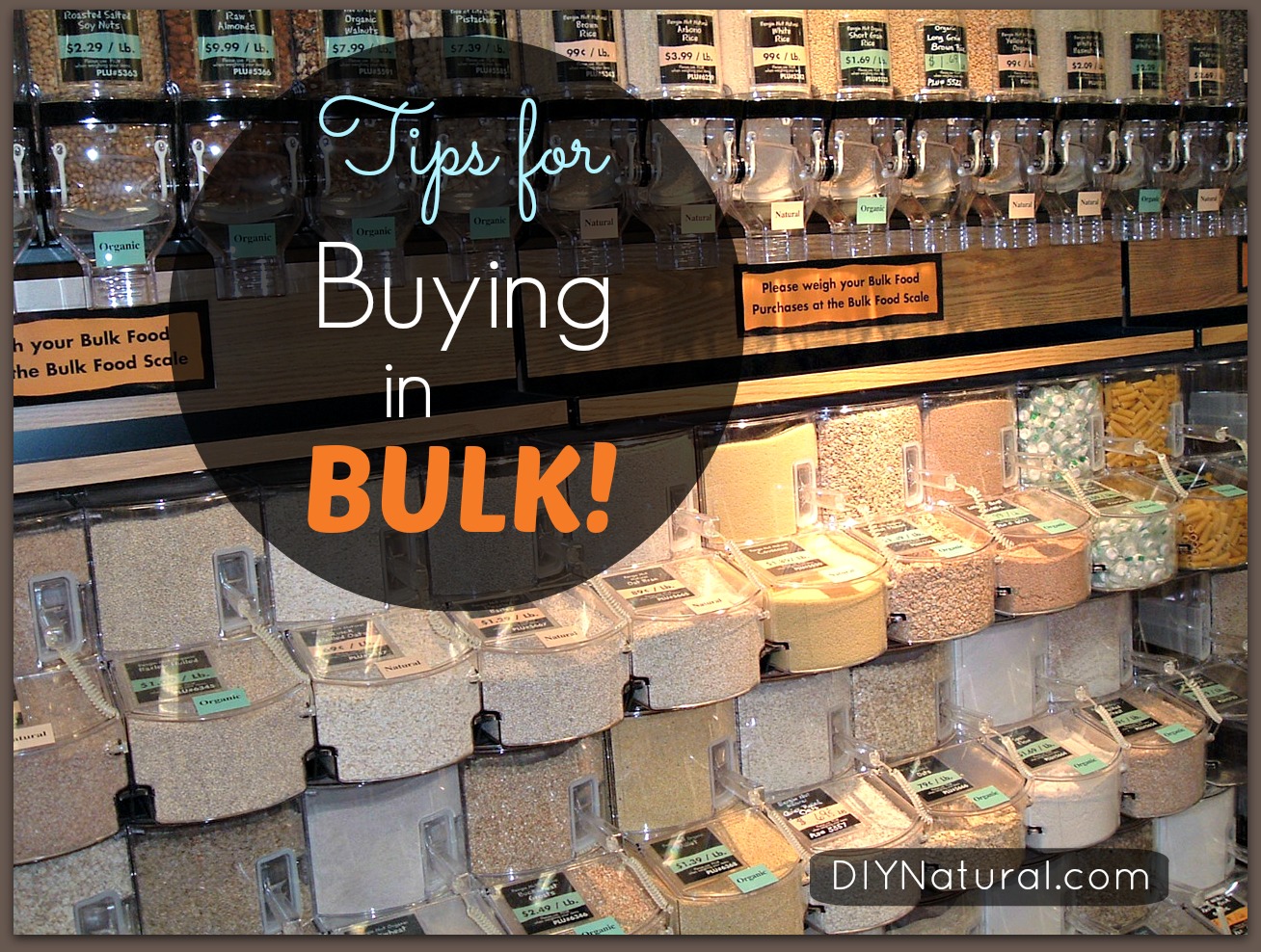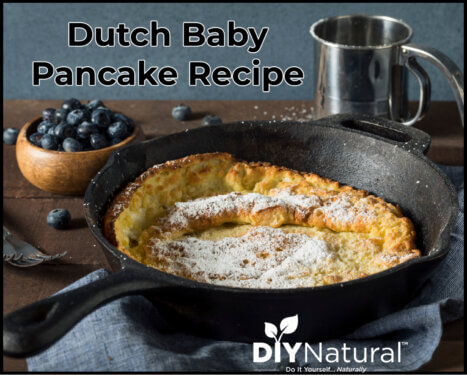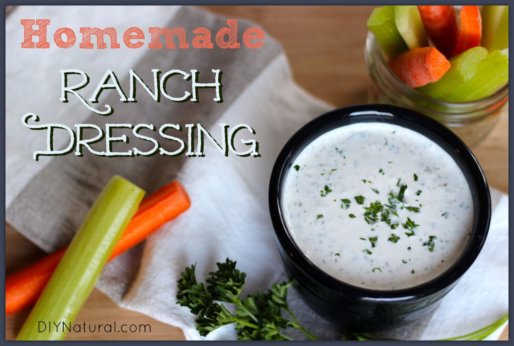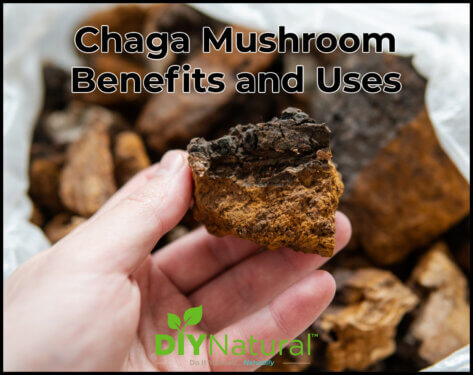I remember the first time I saw a bulk food section (ok, I’d probably seen plenty before, but this one made an impact). It was at Winco, a discount grocery store near my in-laws. They had so much good stuff! Nuts. Grains. Baking supplies. And candy. Oh, the candy. (These were the days before I paid any heed to what I ate.) I fell in love with Winco that very day.
Fast forward several years to my first time in a co-op in Oregon. It was beautiful. They had so much … bulk. Bulk honey, maple syrup, olive oil, dry goods, natural soaps. There were items I didn’t know you could even buy in bulk (tofu? really?). I wanted to work there. Heck, I wanted to live there.
Yes, yes I am that weird lady who loves a good bulk section so much she’s willing to uproot her family and move a hundred miles just to be near it. But I’m not ashamed. No, because buying in bulk has done so much for both my budget and my health, that I don’t hesitate to sing its praises.
In fact, I thought I’d share a few tips I’ve picked up over the last few years of bulk shopping:
Reuse Bags & Containers
Aside from saving money on food, my other favorite thing about buying in bulk is reducing waste. That’s really simple to do when you bring your own bags and containers to the store you get your bulk food from. (find reusable cotton drawstring bags here)
If you don’t have them, or forget, use the plastic bags provided and add them to your reusable bag stash (I would suggest figuring out a system that works for you so you don’t forget your bags).
Find a Store with Good Selection
Buying in bulk is much easier when you can find a store with a good bulk selection. If you don’t know where to find one, ask around (I always start with Facebook).
Your friends might be able to point you to a store with lots of good stuff. Also, there’s a new free app for smart phones, called Bulk, which helps you find bulk buying options in your area.
Tare Your Containers
If you bring your own containers to put bulk items in, tare them first. That simply means weighing the item empty and making note of the weight so it can be subtracted from the total at the store.
Some stores have scales and have you do it yourself. In others, ask a cashier to tare your item and make sure they will take the weight off the total (I’ve had a store not do that before and I had a heavy canning jar).
Think Outside the Big Box
I used to be an avid Costco shopper, heading to the giant warehouse and coming back with a trunk full of goodies, many not on my list. Now, I just get a few items and am currently looking for other options.
One of my goals for buying in bulk is to reduce waste, which doesn’t happen when I come home with a lot of products with excess packaging. (It doesn’t help that I live an hour from said store.)
Also, not all bulk shopping needs to be done in stores. Farmer’s markets are a great place to get food in bulk, as are local farms. Check out Local Harvest if you need help finding them in your area.
Go Easy on the Amount
I have a tendency to want to fill my bag up all the way. Unfortunately, that’s just led to wasted items. Either we tried it and didn’t like it, or it went bad before I could use it all. Buying in bulk allows you to get just what you need, whether that’s 4 cups or 4 teaspoons.
Get just what you need and resist the urge to get as much as you can even though you don’t need it.
Note Items You Could Be Buying in Bulk
While you’re shopping, take note of the bulk inventory. Is there anything else you could be using that you aren’t already? Maybe you’ll spot something you didn’t know you could buy in bulk or perhaps you’re up for trying a substitution to what you’re already using, but can’t get in bulk. The beauty about bulk is you can just start with a little to see if you like it.
Store Items Quickly
Move bulk items from bags to storage containers as soon as possible. I don’t know how many times I’ve had curious little fingers poke through bags of food, only to find it spilled on the floor.
I use different-sized canning jars so I can see what’s in each and how much I have left. After everything is transferred, I wash bags that need it and put the bags together where I can grab them for the next shopping trip.
Use Well-Sealed Containers
I favor canning jars because they’re see-through and have well-fitting lids. However, we also use large food-grade buckets for rice and beans, which we buy in large amounts because we eat them so much. There are lots of different food storage options available, just make sure they seal well.
Label!
Figure out a labeling system that works best for you and use it. I’ve forgotten to label on numerous occasions, only to find myself searching through my pantry looking for something I thought was there. Labels are a good, good thing.
Rotate for Variety
I read this tip the other day and it blew my mind. Since we’ll be living in an RV soon, I wasn’t sure how I would store all of the jars full of dry goods. The answer? Rotate it!
Bea Johnson, author of The Zero Waste Home, suggests assigning each storage jar a category, like legumes, grains, tea, etc., and buying different varieties when those run out.
So rather than the jars full of red lentils, green lentils, chickpeas and black beans (that I’ve had for months), I would just have one jar for legumes. Perfect for saving space and making sure food gets eaten quickly.
Do you have any tips for buying in bulk?
*******
photo credit to bcmom





I am reading Zero Waste Home by Bea Johnson. I’m still reading up on the principles part of it, haven’t made it to the practical application yet. I don’t have bulk buying available to me, but I’m thinking one place to start is by taking my own container to the deli when I have them slice my meat: cut down on the plastic bags comeing home. They weigh and print out bar-coded stickers there, so the weight of my container s/b a non-issue. I’m thinking I could start buying my sliced cheese from them in the same manner, although I don’t think I could get them to shred it for me (would have to bring that home and put it thru the food processer).
Baby steps . . .
I am a HUGE bulk shopper! In an effort to reduce packaging, I found myself elbow deep in bulk bins of quinoa, raisins, beans and oats. I love the benefits of shopping this way: more time spent preparing your food means a slower lifestyle, less packaging (actually, zero packaging!), more variety and a kitchen that hosts jars and jars of beautifully displayed dry goods. I would gladly drive an hour if I needed to for a good bulk section. Thanks for sharing your tips!
I can a lot of jams and piccalilli, buying the herbs in bulk is a true money saver.
1/4 tsp of something can break the bank when it comes to spices. Turmeric is not a big seller in my house but paying $3 a bottle or buying it at a discount store is not gonna happen. I buy it in bulk and sometimes pay as little as a quarter for all that I need. Bulk tea is good too. You get to try new things without breaking the bank. Case in point I was reading about natural sweeteners rapadura and the coconut palm sugar each cost about $9 for a 1/2 a pound. Went to the co-op and they had bulk turns out my family is not fond of either of these and are quite willing to stay with honey. Remember when shopping for anything to check the price per unit to save even more money.
It’s the old hippie back again.
I recommend you guys to my pals on Daily Challenge for the dishwasher powder to start with. I described it as embarrassingly easy to make.
I’m writing since I just visited a semi-nearby Winco at the beginning of this week. I buy some things there that I don’t allow myself to buy anywhere else. Macadamia nuts come to mind. And yes, I have to watch the amount or I will be paying for and eating mountains of them.
In my part of the Northwest, Fred Meyers (Kroger) also has a bulk section.
I imagine if consumers ask their favorite grocery stores often enough, they might get bulk bins in the next renovation. My grocery stores and libraries undergo renovations.
Fred Meyers and Winco both have bulk spices which means not paying for the bottle.
I probably ought to take my empty vitamin bottles for the spices. Winco was out of the half size plastic bags when I was there.
Winco now has, at least for the moment, organic chicken.
I hardly ever have an excuse to rave happily about my favorite grocery stores. Thank you for the opportunity.
I love your site. I was delighted to find you folks on Google+ which I am trying to use instead of blogging. Still stumbling around as a newbie with it.
I want to remind everyone about their local libraries. I live near one of the best. Should I ever move back to the Midwest, I will miss it like crazy.
I am sending you support and encouragement in what you do.
i live in oregon & im curious where the bulk/coop is. we do most of our shopping at winco but ive never seen strup olive oil etc. thank you
i LOVE bulk food!! I have yet to come up with a good storage system though. So many of my bulk items just stay in their bags and get piled in the mess of a pantry… one day I’ll be better!
Do you know if Winco will subtract the weight of your own storage container if you bring your own? I’d love to do this as I feel like I waste so much plastic by using the stores’ bags.
No Winco doesn’t allow you to subtract the weight however they do let you bring your own containers, as long as you know you have to pay a little more. We use lightweight reusable cloth bags that don’t add that much to the weight anyways so I think it evens out in the end. When I get home from grocery shopping I spend at 5-10 minutes transferring everything from the bulk food bags into big glass jars. You can re-use old pasta and jam jars that are clear so you can still see what’s inside them. (Also having a good funnel in this process helps!) If you do shop at a co-op, most co-ops allow you to take your glass containers and subtract the weight which is much more convenient since you don’t have to worry about transferring things to different containers! If you can’t spend the time transfer everything to jars you can also use big Tupperwares to have separate bins for general categories of things… like a “legume/beans” bin, a “nut/seeds bin”, etc.
I have a couple of GFs who frequently hit all the spots I’m not able to make it to, I just need to hit them up as personal shoppers!
I’m just confused on the membership fee. From what I can tell, you can get a free trial for 3 months, but if I don’t want to pay the $80 membership, are the savings still there/comparable?
So, this post got me thinking, and so I looked online to find the nearest bulk food store, figuring that at some point I would check it out, and sadly, the nearest location is 1.5 hours away 🙁 Surprising considering the larger cities in Iowa that I am surrounded by! Anyone want to finance the start up of a BFS? 😀
Kelly J, What bulk foods store were you looking at? I’ve been surprised to discover that most grocery stores have at least some bulk foods ( even Safeway and QFC) and although they may not have as good of a selection as Winco, at least it helps reduce some of the cost! Also have you tried searching for co-ops or farmers’ markets in your area? There’s a lot of bulk foods there too.
I frequently buy spices in bulk (amongst everything else) and our store does not allow you to bring your own containers. So I bring a sharpie along to write on the plastic bag the name and SKU number instead of getting a tag. This saves a few cents to a few dollars everytime because I don’t pay for the weight of the tag (especially for the really pricey items)!
Hi Jacqui, I do my bulk shopping at a Winco store and although they don’t allow me to take “tare” weights and subtract them from the overall weight, they do let me know bring my own container. Since we go to the same store every week the cashiers now recognize us and know what to do with our cloth bulk food bags. I wonder if you talk to customer service and explain that you want to use lightweight cloth bags if that would work.
Learning to preserve food is also a great idea. This way more can be purchased when items as on sale (or in season at farmer’s markets). Drying, canning or even freezing can help cut down on the number of trips to the store.
I sometimes forget my re-usable muslin bags when they’re lurking in the laundry. When I have to use plastic bags, I clean them up and stash them in an empty tissue box. The box is kept with my re-usable grocery bags and is easy to grab on the way into the store.
My GFs and I recently visited a Costco in hopes of scoring a deal on hot dogs and fixings for the PTO to host the last day of school party, only to find that our local grocer’s weekly sales were WAY less costly (esp. if you have a couponer in the group). I’ve also found that our local Wal-Mart’s antibiotic/hormone-free brand of chicken is 70 cents cheaper per pound than Costco’s variety. Any discouraging feelings I previously had about not being savvy enough to shop there were quickly dispelled.
My current mission is to find the best deal on diapers for the impending birth of our 4th child this summer. Any suggestions? I need to weigh the cost of membership to sites like AmazonMom and Diapers.com and the s/h cost/savings vs. what I’m paying now @ Wal-Mart.
I am NOT a reader by any means, but I snuck a look at the Zero Waste Home on Amazon and found myself literally DEVOURING everything I read. Time to whip out the library card and see if I can dig this goody up! Thank you for the post!!!!!
My GFs and I are going to try and get a drop site established here in town for Azure Standard and we’ve discussed sharing bulk items. I also have a GF who mills her own wheat who I can buy fresh flour from. I am so grateful b/c, as a FT working mother, I can’t afford to sacrifice my Saturdays driving the hour it takes to get anywhere to shop around (with 3-soon-to-be-4 in tow). By the time we all make it home, I’m too tired to catch up on my chores and prepare my cooking for the week, which ends in waste. Not to mention, by the time I pay for gas, there isn’t much dough left to buy the things I set out for in the first place!!!
If you can’t/don’t want to do cloth diapers, I think Amazon Mom’ss subscribe and save feature is a great way to buy diapers. We cloth diapered 3 of our 4 kiddos, but we also used that service a few times to get 7th generation diapers for trips and overnights because it had the most savings I could find.
In regards to shopping at big box stores like Costco, have a “price per unit” worked out that is a great deal for you…and stick with it!
It’s very easy to think a huge amount is a great deal, but make sure you break the price down by unit to what you’re paying for each (as though you were buying individually) and you may be surprised to find it’s not as great a deal as you may have thought! 😉